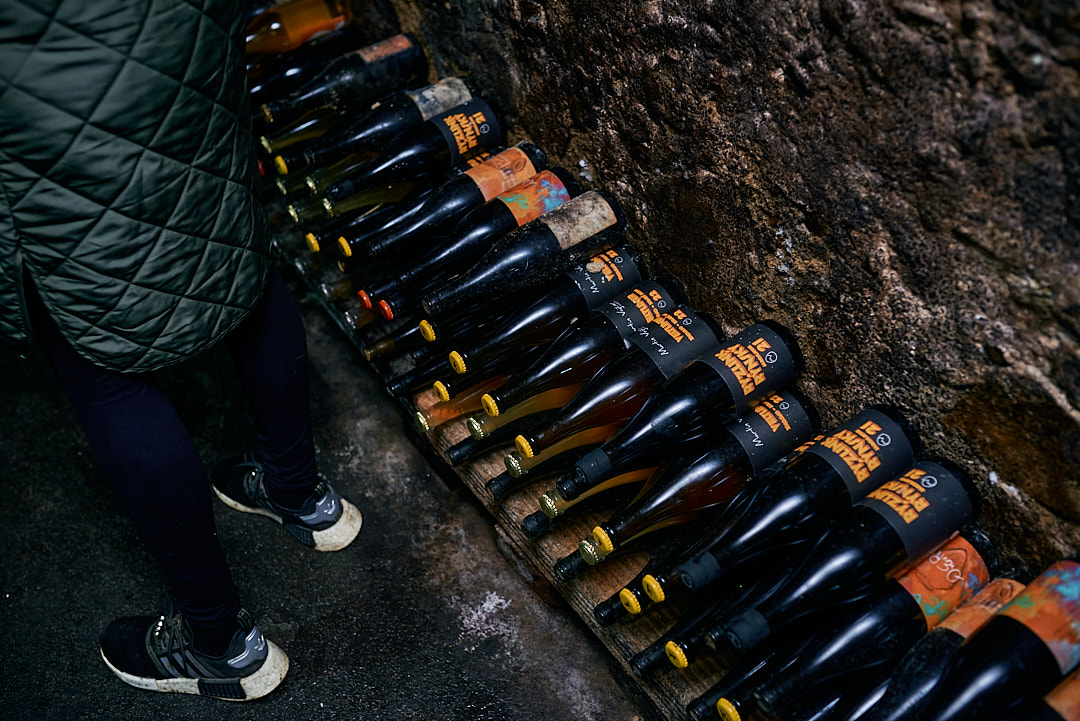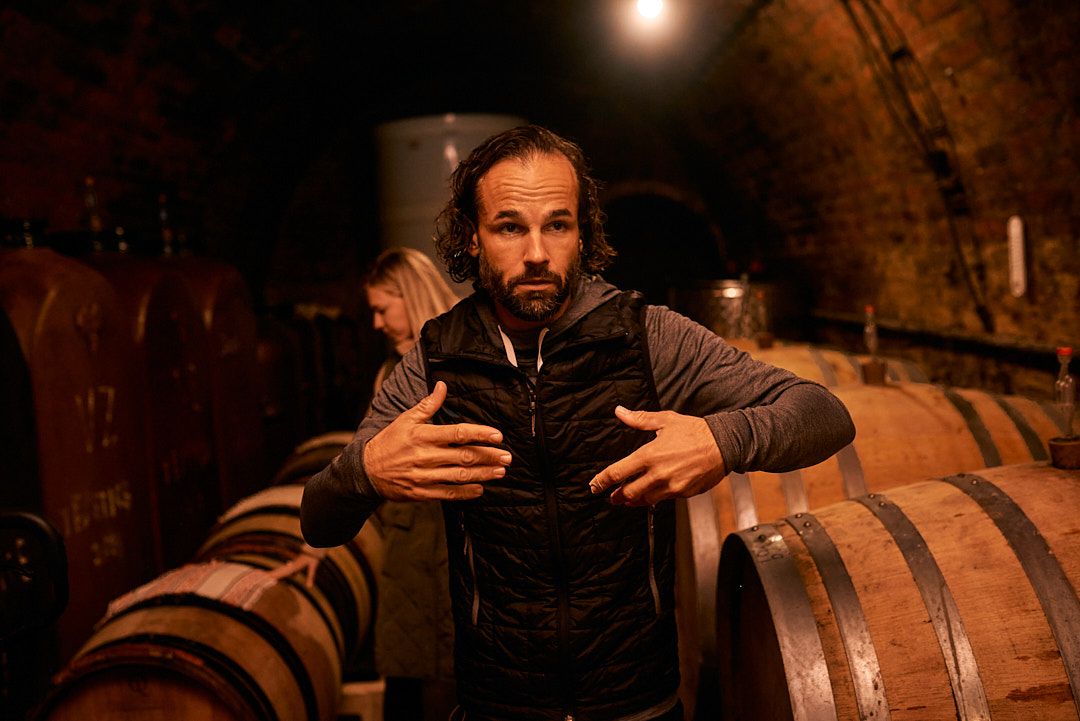
Martin Vajčner: The Vineyard Owns Me
28.7.2025
Such is Martin's passion and knowledge that our conversation spans a whole timeline: from the geological dawn of time that shaped Moravian terroir through Vajčner's centuries-old family tradition all the way to the future of Czech vineyards and appellation system. Dive in.
When you see Martin Vajčner from afar, explaining something to someone, you don't even need to hear what he's saying to know he's speaking passionately about something he loves. Martin is smart, intuitive, tremendously determined, endlessly hardworking, and when he believes in something, he pursues it like a bulldog.
In short, he's someone whose take on current developments in the wine scene you really want to hear – and boy, is there a lot to discuss these days!
Words by Milan Nestarec, photos courtesy of Vinofactum / Jakub Šmakal
I'll start lightly – when I last saw you and Monika, you seemed happy. You're expecting a baby soon, and it looks like you're going through a wonderful period in your lives. How do you feel about it?
It will be a big change. We are both very much looking forward to it. I would say it comes at an ideal time. At the same time, it is a big responsibility. And combining it with cultivating 8 hectares of vineyards is also a challenge. I suspect it will be time-consuming, so hopefully I will be pleasantly surprised!
Your family has a long history of winemaking and cooperage. We all generally refer to the fact that we are doing things the way our ancestors did, but often it is just wishful thinking. Do you have any practices, approaches, ideas, etc. from the Vajčner family that you have found and try to stick to?
I am proud of my ancestors. We maintain good relationships with both our immediate and extended family. From what I see around me, this is not very common. My father's family comes from the Strážnice area and they have been winemakers for many generations. My mother comes from Velké Pavlovice, and her father was a cooper, as were several generations before him. I grew up in the world of winemaking and it is an organic part of my life. Naturally, this has given me a wealth of experience. Both my grandfathers had their own vineyards, and it was a family tradition to go and help with the grape harvest. We still maintain this tradition today, but now we go to my vineyards to harvest the grapes. Perhaps one day I will also go to help future generations of Vajčners.
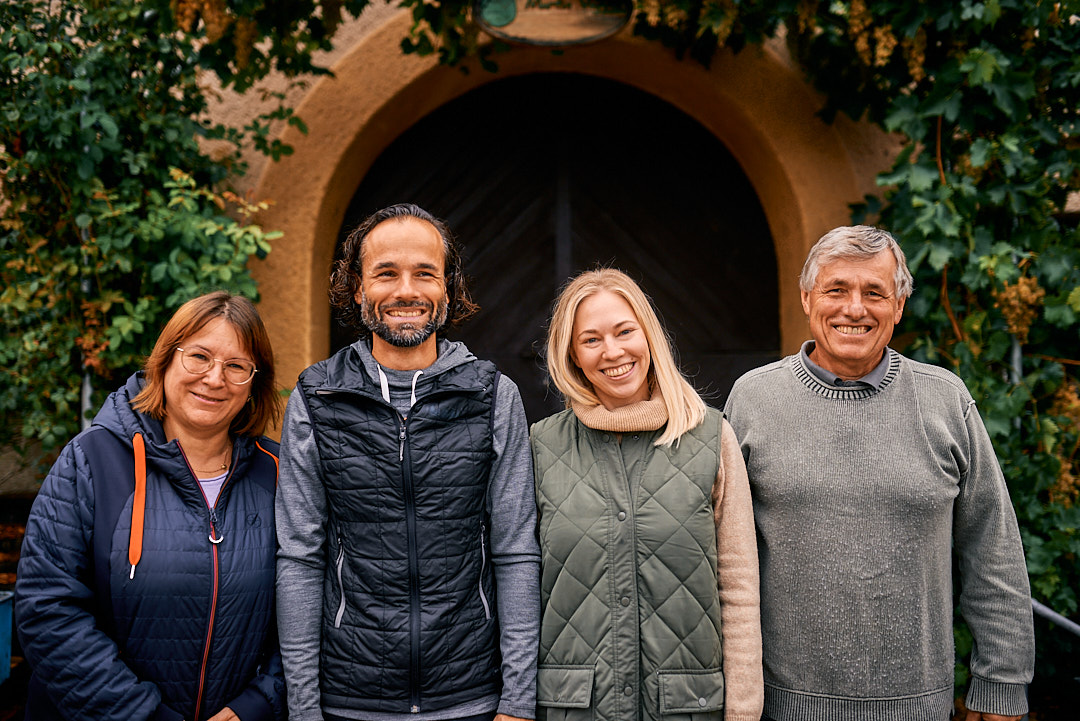
I would like to ask you about your father, who is undoubtedly a major figure in Moravian winemaking and was the long-time director of Znovín Znojmo [one of the largest wine producers in the Czech Republic]. What is your relationship like? It's often not easy for sons to escape their father's shadow, or are not given the opportunity to do so. I think you guys have managed it more than well – I don't mean this as some kind of competition to see who is better, but rather that you two have something to learn from each other. Your father fell in love with natural wine, is that right?
We have an excellent relationship with my dad. His knowledge and experience in the field are enormous. He helps me not only with work in the vineyards, but also with bottling and harvesting. I think he's happy that I'm continuing the family winemaking tradition. Due to his work, he wasn't that much in touch with natural wines before and only got to know them better later with my won production. Now, at family celebrations, with meals, or just to make the day more enjoyable, he mainly opens and drinks natural wines.
They say behind every successful person is a supportive partner. Please tell us more about your wife Monika and your partnership. You do a lot of things together. What qualities do you admire in her? How do you complement each other?
Monika definitely doesn't have it easy with me. She has adapted to my pace, and there's certainly no chance of boredom in our relationship. We do a lot of things together—we like to travel, we like good wine, food, and folklore. We spend a lot of time together, although most of it is related to winemaking, so it's actually work.
She is in charge of administration and communication with distributors at the winery, but she also has her own business—she's a wedding planner. We support each other, which is very important to me. Her strengths include patience and trust. And also the fact that she can pull me out of the vineyards for a moment and remind me that there is life outside the vines.
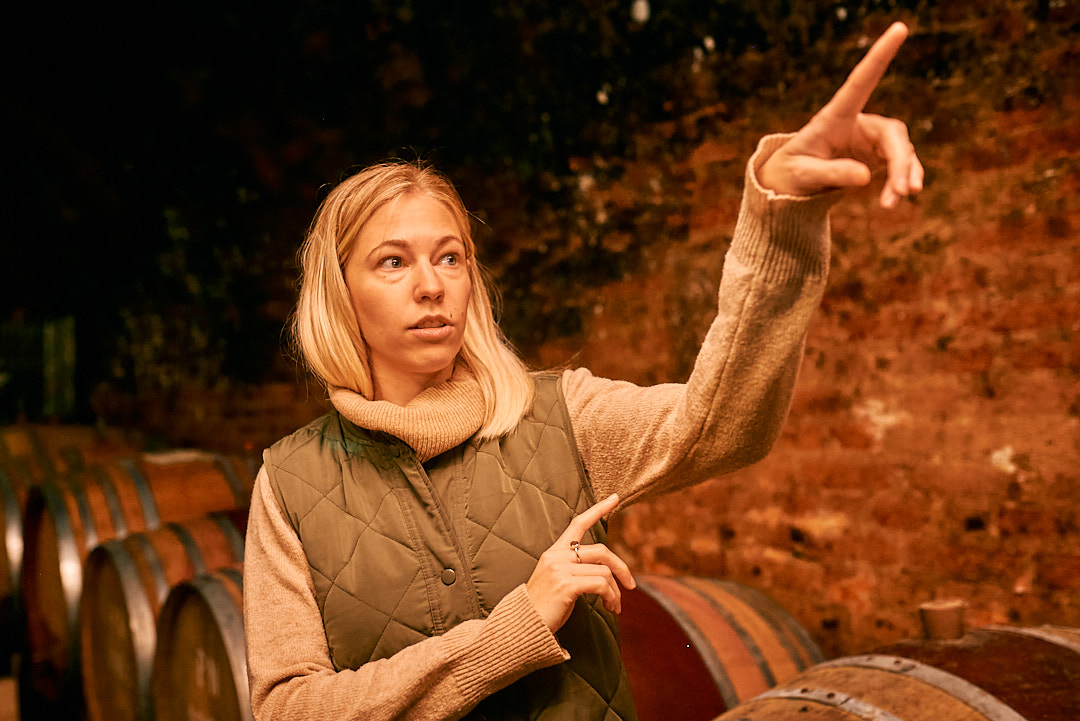
Let's talk about your journey before founding the winery. You graduated from a secondary wine school, where I assume you were influenced by [one of the Czech natural trailblazers]Jaroslav Osička, just like me. What happened next? What are the moments that you still draw on today?
I have been involved in the world of winemaking since I was a child. Meeting Jaroslav Osička at the secondary school of viticulture was crucial for me in getting to know natural wine. After graduating from the wine school, I went on to study for a bachelor's degree at the Hotel Management School, as at that time I saw my future more as a sommelier or working in hospitality. As is often the case, a combination of chance and circumstances brought me back to winemaking.
I started working at the Central Institute for Supervising and Testing in Agriculture (ÚKZÚZ) in the Viticulture Department, where I spent 10 years before devoting myself fully to my own winery. I gained a wealth of information not only about the ampelography of local and foreign varieties, but I also remember, for example, the very detailed monitoring and comparison of all phenological stages of grapevine development, testing rootstocks, monitoring disease resistance, and so on. I must say that at the time I had no idea how useful all this experience would be, and I still draw on it today.
While working there, I also studied Management Studies at Nottingham Trent University. It was a British-style program, where students from various professions came together and each had the opportunity to apply the subjects to their own field. Specifically, I studied micro and macroeconomics, strategic and business management, and similar subjects from the perspective of a wine company. I really liked the foreign style of teaching; I wish Czech universities worked the same way. It helped me grow a lot personally, and I started to believe more in myself.
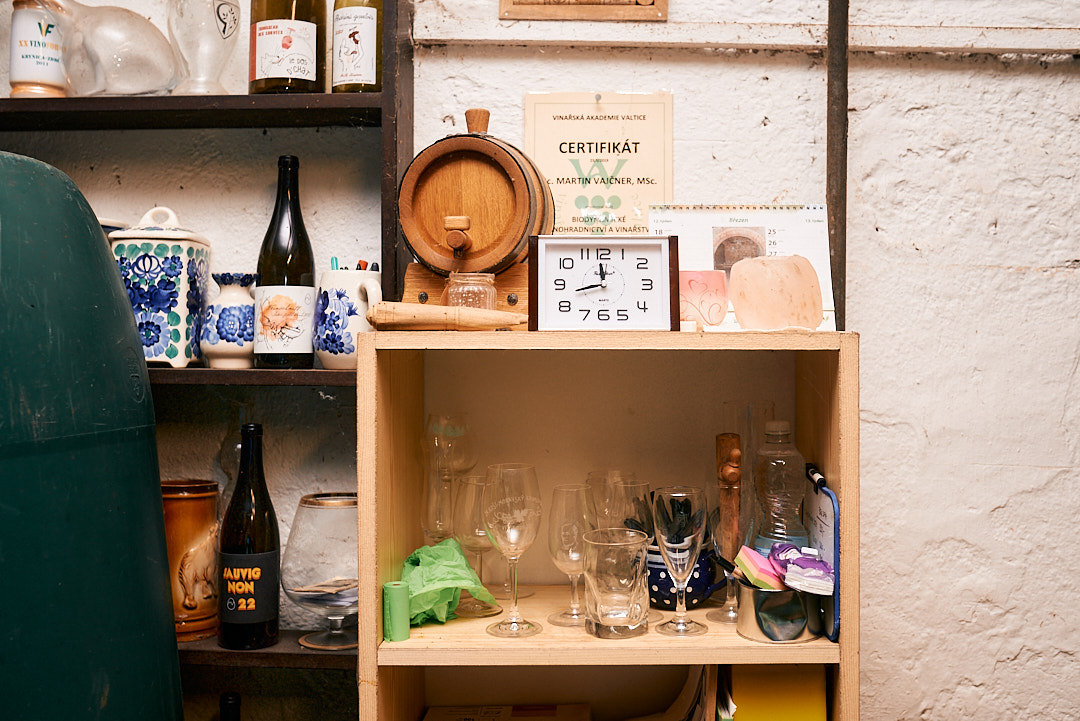
You come from the Znojmo region and farm in several different municipalities, locations, and plots, each with different geological characteristics. I won't ask for details about each of them, as anyone can find that information on your website. I'd be more interested in hearing about any geological anomalies, curiosities, or anything that surprised you in relation to the terroir. Is there anything like that? And is there a dream location where you'd like to grow grapes in the future?
I'm proud to be able to make wine in the Znojmo region. I have complete confidence in the local subsoil. I have 8 hectares of vineyards, or rather, 8 hectares of vineyards own me [laughs]. It's amazing how such a small area can show such different geological features. I am increasingly surprised by how much the subsoil influences the final wine. Wines from Kraví hora or Tasovice, i.e., the Paleozoic Bohemian Massif, have a higher amount of natural sulfur in the soil. I prefer to taste wines from these locations in the cellar only after the New Year's Day because they always have a distinctly reductive, even sulfuric aroma. But if you wait, you will get absolutely clean and stable wines that don't need a single milligram of sulfur.
In Konice on Kraví hora, there is a vineyard right next to the Podyjí National Park that has always intrigued me. You will find more quartz here than classic topsoil. Nowhere else in Moravia have I seen such stony soil in a vineyard. This year, my dream came true, and I am cultivating it for the first time. I hope we will taste the wine from here together someday!
The Czech Republic is currently working on introducing an appellation system, and I know you are involved in this process in some way. I'm not asking about how the system works, its advantages or disadvantages, but I'm interested in your personal opinion on how it will be implemented in practice. Will you be participating personally with your wines? And what is your opinion on the fact that wines must be approved by a commission that determines what is typical for a particular vineyard?
The addition of yeast and other additives to wine creates a product that makes up to 99% of the market in our country. Quality is determined by the number of gold medals from tastings, analytical data, and marketing. But this says practically nothing about the character of the vineyard's subsoil. For this type of "modern" wine, it doesn't matter whether the grapes come from Znojmo, Velké Bílovice, or Mikulov. Sometimes, thanks to the added yeast, you can even make "Sauvignon" from Riesling. With wines like these, there's no point in talking about the appellation system.
The appellation system makes sense to me in terms of setting rules for vineyard cultivation and cellar work. It supports a focus on the purity of the terroir expression in wine, without other influences. I understand that at the current stage of development of the appellation system, this is not realistic for 99% of wineries in our country.
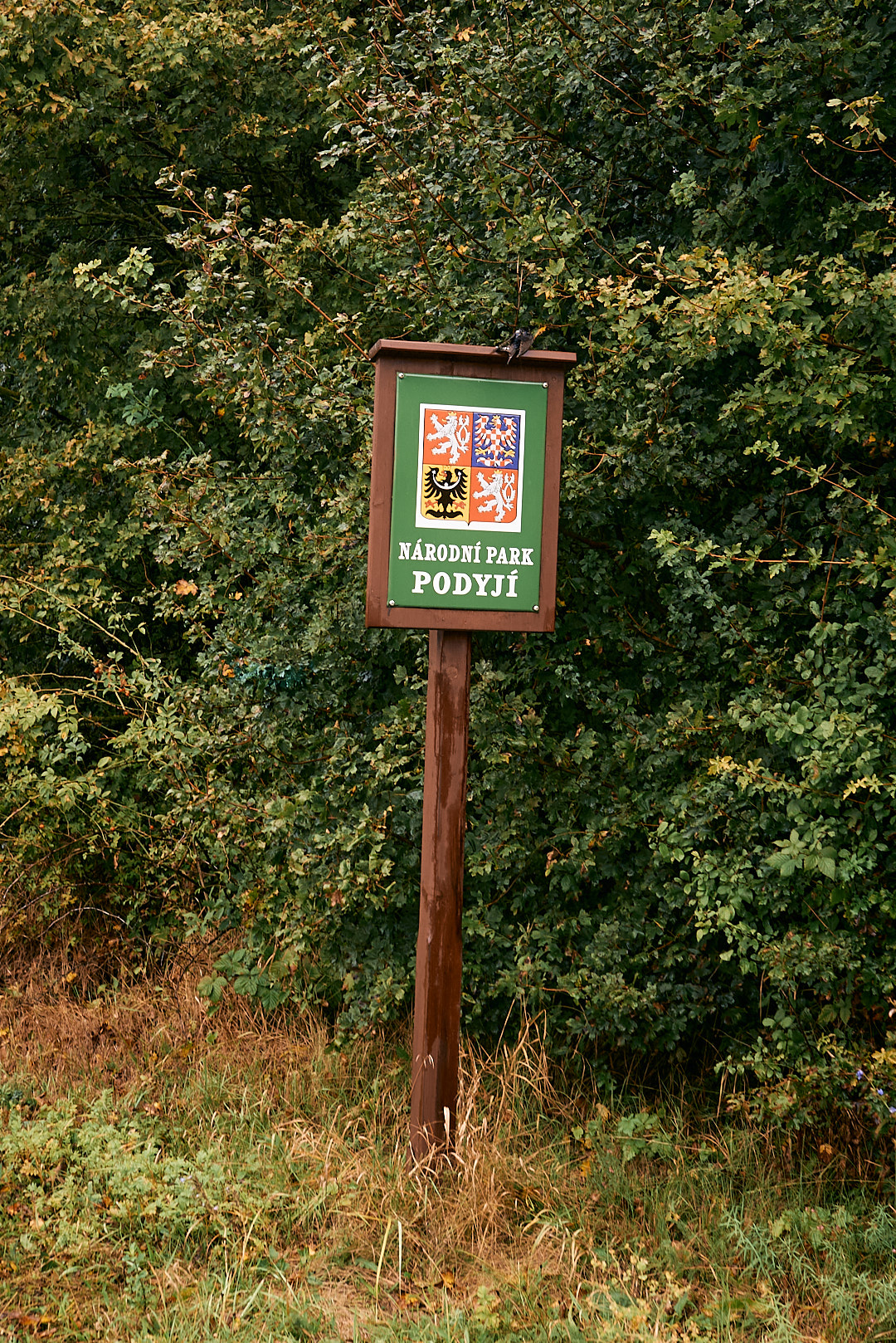
On the other hand, there is a real threat that we won't be able to market and label natural wines under the "Moravian Land Wine" [Moravské zemské víno, equivalent of a Vin de Pays / IGT level classification] category. It is absurd that the wines made in the most terroir-pure way possible could eventually fall into a category where it is forbidden to indicate the region of origin or variety on the label. That is why I think it makes sense at the moment to be involved and set rules for "natural" wines within the newly created appellation system. Perhaps it will go in the right direction and the system will work well for all types of wines. And maybe not. But then I would like there to be the option of listing "natural" wines in a separate category within the appellation system.
The evaluation comittee of the "natural" wine category should only serve for eliminating defective wines. In my opinion, no one has the authority to say that wine from a given location should have such and such characteristics.
"How absurd that the wines made in the most terroir-pure way could eventually fall into a category where it is forbidden to indicate the region of origin or variety on the label. "
I see you as someone who knows what they want and goes after it. Nevertheless, have there been any moments of disappointment, changes in philosophy, revelations, radical decisions, turning points, etc. in your approach to wine?
I founded the winery in 2017. I had been making wine before that, but in 2017 I leased my first vineyard. Other vineyards quickly followed. Having your own raw material is absolutely essential; you can't make natural wine without your own grapes. Since the 2020 harvest, I have been making wines completely without added sulfur.
I have a goal. Everyone holds the fate of their work in their own hands. I'm going for it. Not everything works out right away; winemaking is a very complex and demanding field. Every experience moves me forward. It's a long-distance run, and one attempt a year isn't much. And when everything looks great, the weather and nature show us who's the boss. But I shake it off and move on. I believe in what I do, and I enjoy doing it.
When you started travelling abroad with your wine, I can imagine it was like a new energy flowing through your veins. Have any foreign winemakers influenced you, for example French ones, and if so, which ones? Or are you immune to such influences and believe that authenticity can only be achieved by following your own path?
Travelling abroad was eye-opening. It was and will continue to be very important for the evolution of my winery. I dare say that without traveling, it is impossible to evolve. I believe that we have amazing geological subsoil in Central Europe, but we lack several generations of experience due to the previous regime.
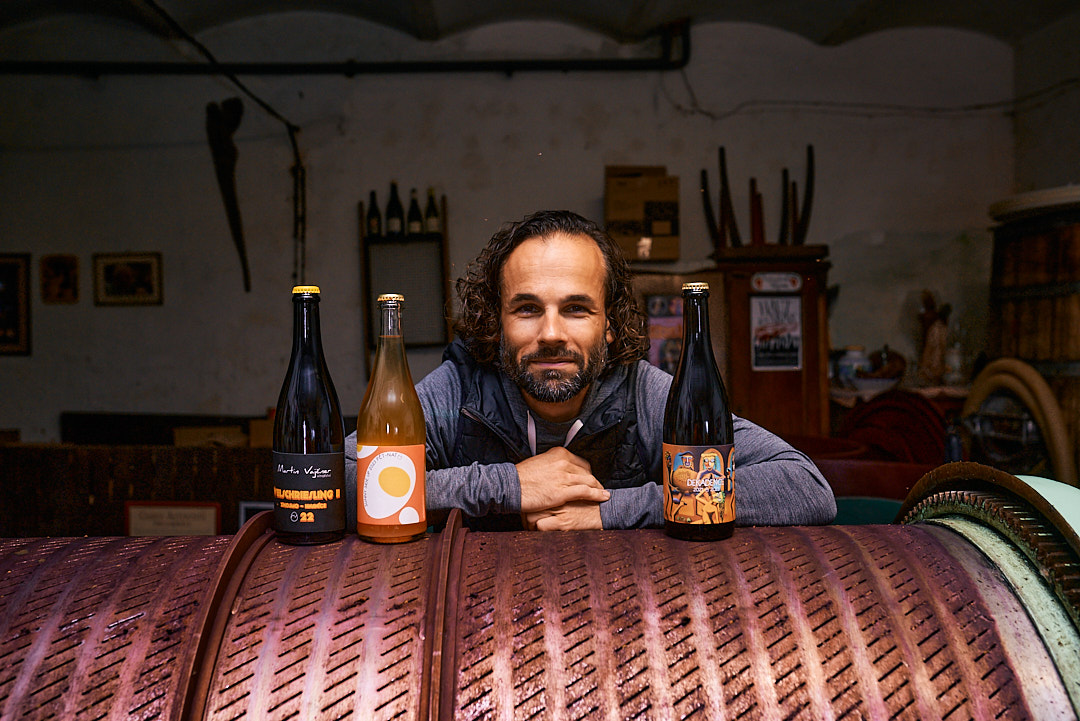
I was particularly influenced by trips to France, specifically to Jura and Burgundy. My visits to Rotalier with Jean-Francois Ganevat are unforgettable. On the other hand, among small winemakers, I am fascinated by the minimalism of Burgundy winemaker Arnaud Chapuis. I am also inspired by the precise approach of Sepp Muster from Styria, Austria.
I have verified that this newly acquired knowledge about vineyard cultivation, grape processing, and winery operations can and do help me. Not everything is written in books. And when it comes to approaches to even greater wine purity, authenticity always comes through, thanks to our different geological subsoil.
"We have amazing geological subsoil in Central Europe, but we lack several generations of experience due to the communist regime. "
I have noticed that, for some time now, my approach to wine is becoming simpler and simpler. I no longer want to be different just for the sake of it and do things just because they stand out. Do you notice something similar in yourself? Different and extravagant does not necessarily mean better. Do you feel that your taste preferences are evolving, and are you adjusting your approach accordingly?
I completely agree, it's probably a natural development. For example, I press whole grapes for white wines. In the morning, the grapes are hanging in the vineyard, and in the evening, the grape juice is already in barrels and amphorae.
As for reds, the Znojmo region has ideal conditions for producing light, aromatic reds with low alcohol content, so I make all red wines using carbonic maceration of whole grapes, which further enhances these advantages of the Znojmo region. However, the subsoil and the vintage determine how the final wine will taste.
All wines are aged for 1-2 years in barrels and amphorae on gros lees. I do not perform any racking or bâtonnage. I have complete trust in my vineyards. I have become very fond of Ryšák-type wines – I try to harvest and process different white and red varieties together, but always only from vineyards with the same type of geological subsoil.
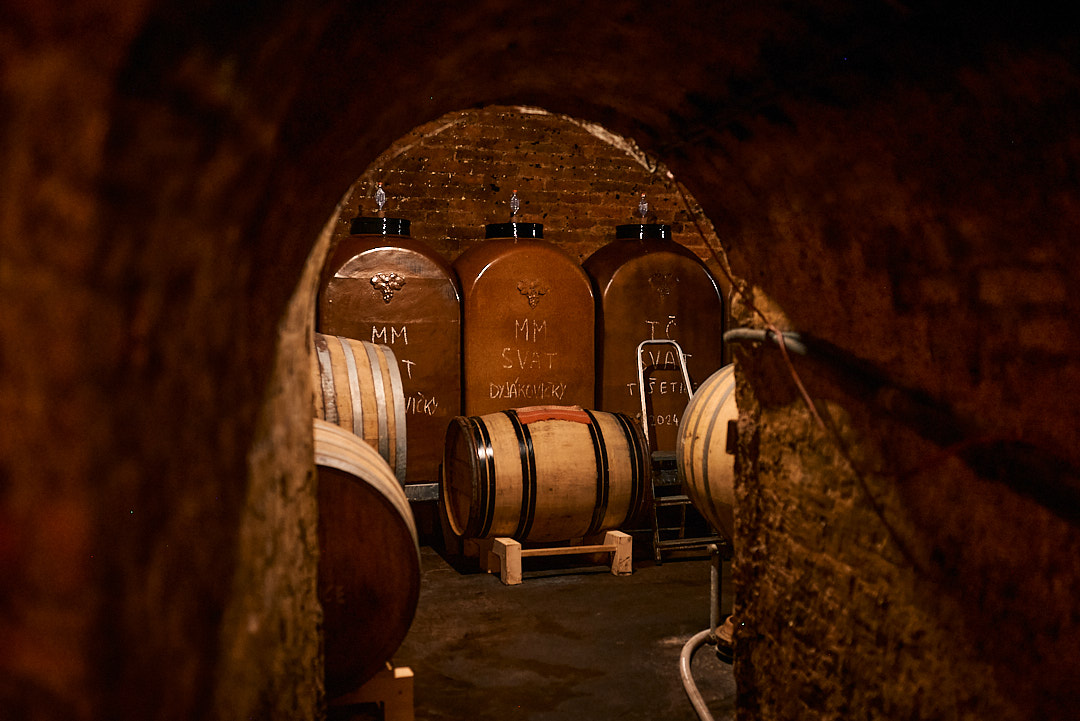
What specific innovations have you made to your vineyard in recent years that have been game changers? Something fundamental, or perhaps a detail that you didn't even think would have such a big impact on the condition of the vineyard, the profile of the wine, etc.?
The long-term change in weather is evident. In general, I try to prepare the vineyards for long periods without water. It is a very complex and sensitive process, where every change affects the final wine. But that would be enough for another two interviews [laughs]. Moreover, every vineyard is a little different. In general, I try to find the ideal balance between the amount of leaf area and the moisture content of the soil. The biggest source of nitrogen for my vineyards is rainfall.
The more rainfall remains in the topsoil of the vineyard, the better the wine ferments. This increases the wine's reductive properties and resistance to oxygen. From my point of view, this is an essential task for the production of natural wines without sulfur. Maintaining the correct height of the grass cover has a big impact. I have found that mowing as late as possible, or not at all, works best. Ideally, I do not remove the leaves at all. Every extra day with a full leaf area makes a difference. But as soon as disease pressure arises due to increased humidity under the leaves, it is necessary to react immediately.
What is crucial for you in wine – a natural approach, expression of terroir, typical expression of the variety, energy, or something else entirely? I ask because your wines have a relatively low alcohol content, with some reds hovering around 10% ABV.
I want to make lively wines with character. For me, the pure expression of terroir is essential. And in my opinion, that goes hand in hand with the need to bring more than just healthy grapes from the vineyard to the cellar. I also need them to have sufficient acidity, aromatic substances, nitrogen, potassium, phosphorus, and so on. And that cannot be achieved without a long-term ecological and individual approach to the vineyards. When you don't have that, winemakers then have to add everything in the cellar, and I don't want to do that; then it's no longer about terroir.
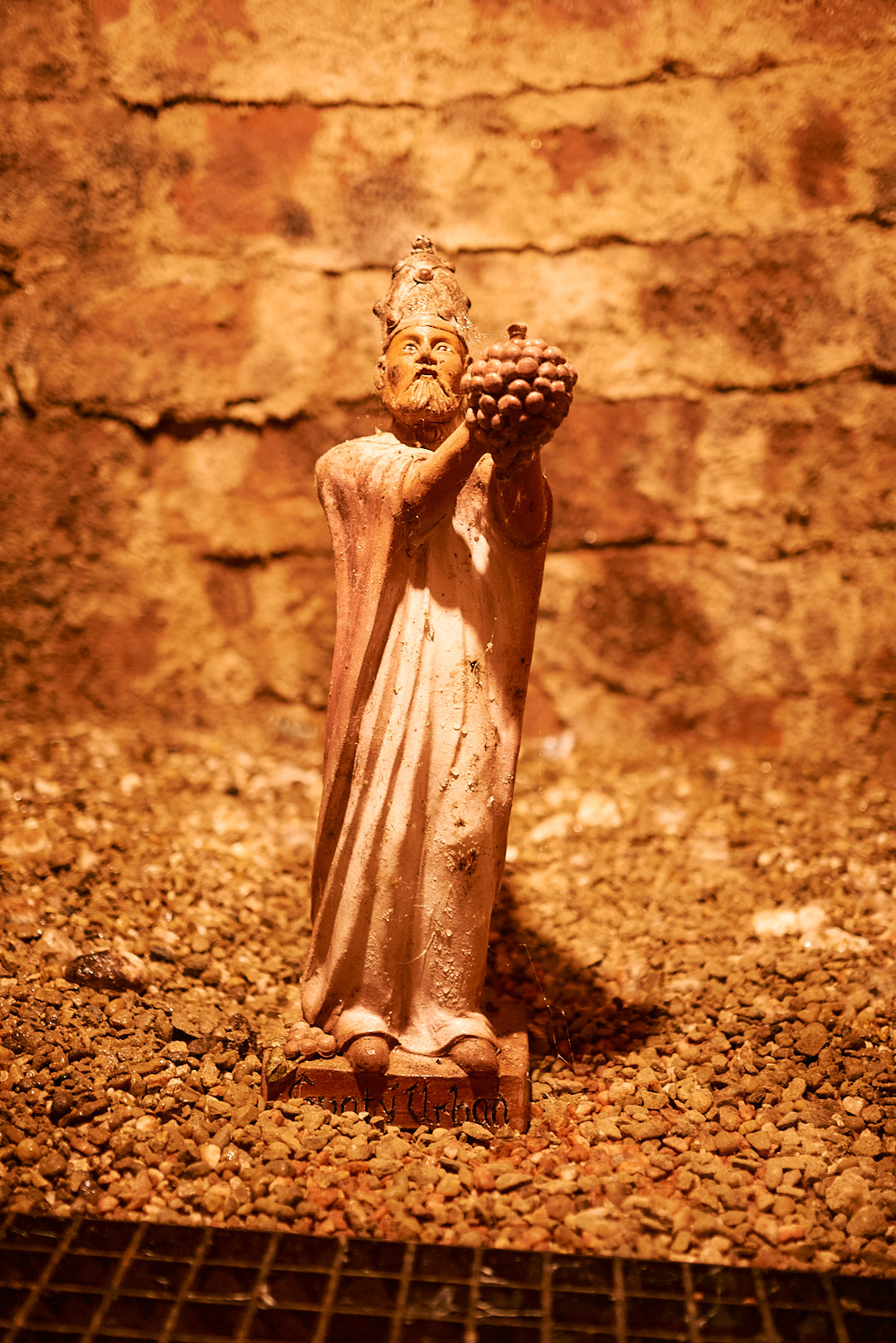
How do you approach harvesting and timing? Is it purely intuitive? Or do you plan from the outset how the final wine might turn out?
The timing of the harvest is a spontaneous process. Ninety-nine percent of the time, I don't even know the sugar content of the grapes I'm harvesting. I only find out after analyzing the alcohol content when the wine is bottled and we are preparing the label.
"I am in the vineyards each every day, and I believe that I am the best judge of when the grapes are ready to go to the cellar. "
No sugar content, wise book, or pH of the grapes from the laboratory can tell me that.
What does the future hold for you, what are your plans, dreams? Can you tell us what we can expect to taste in the future and what direction your winery will take?
I have been self-sufficient in terms of producing my own grapes for a number of years now, and that is the foundation on which I want to build. I have found my limit in terms of the maximum size of the winery and vineyard area that I can manage. I don't want to increase my production so that I don't have to hire employees at the winery.
My next goal is to release wines to the market a little later. Ideally, I would like to let them age on gros lees for at least three years and then another year in the bottle. I am gradually getting closer to this, but it will take a while. And in the vineyards, I am looking for ways to reduce the use of mechanization.
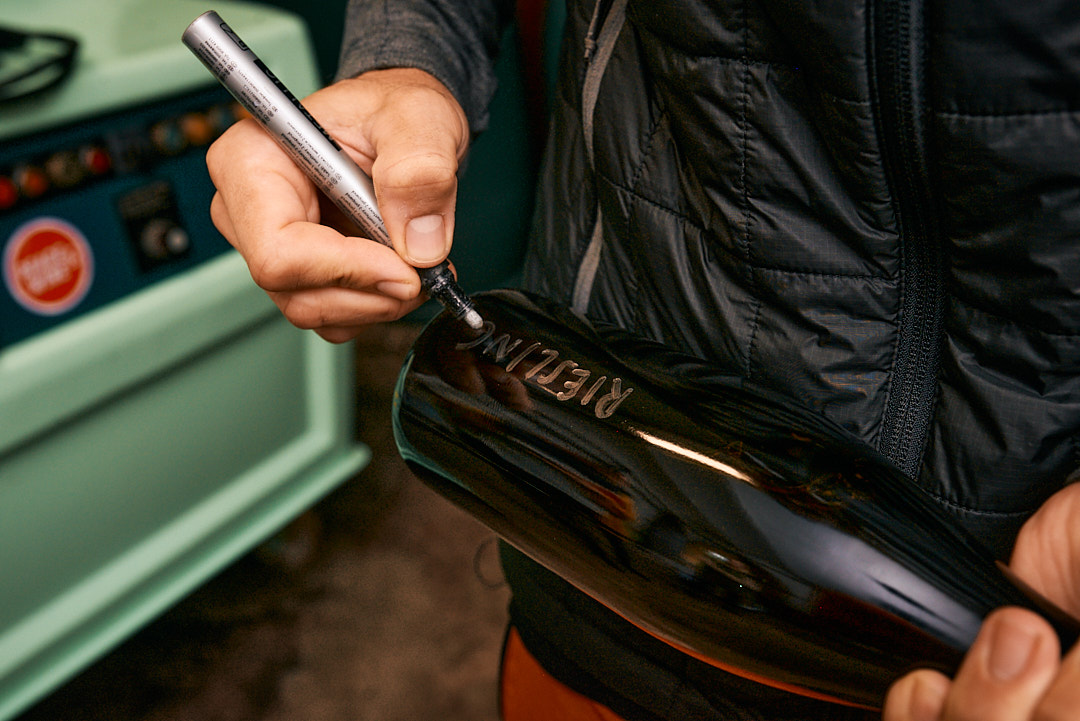
What's your view on the future of Czech and Moravian viticulture? There is a concept and long-term plan for our viticulture on the table, which was put together by the Czech Winegrowers' Association. How do you see the future of our viticulture? What pleases you and what worries you? Or do you not think about it at all?
I think it is inevitable that we will have to change our approach to vineyard management. Ecological approaches will be fundamental in vineyards and in agriculture in general in the future. I think this must be clear to everyone. But it will take some time. Unfortunately, the prospect of stable and larger profits and mass production based on intense marketing is easier and more attractive for now. No generation has had it easy, but we will be correcting the shameful approach of the 1990s generation of entrepreneurs in agriculture for a long time to come. And it is only thanks to agricultural subsidies that this system is still in place, paradoxically. But times are changing. And it is happening right now. The younger generation is different, I am an optimist.
Finally, my obligatory last question. Do you consider wine to be an art or a craft? Or a combination of both? Or something else entirely?
Wine production has a profound meaning for me; it is both an art and a craft. I find it fascinating to imagine that wine tasted similar in its pure form, several thousand years ago. It was rarely absent from important historical events. It is a noble drink that carries information and energy. Not just alcohol. It is a testimony to place and time. My goal and mission is to make wines here and now in their raw and pure form, so that everyone who tastes my wine can find this information in their glass.
